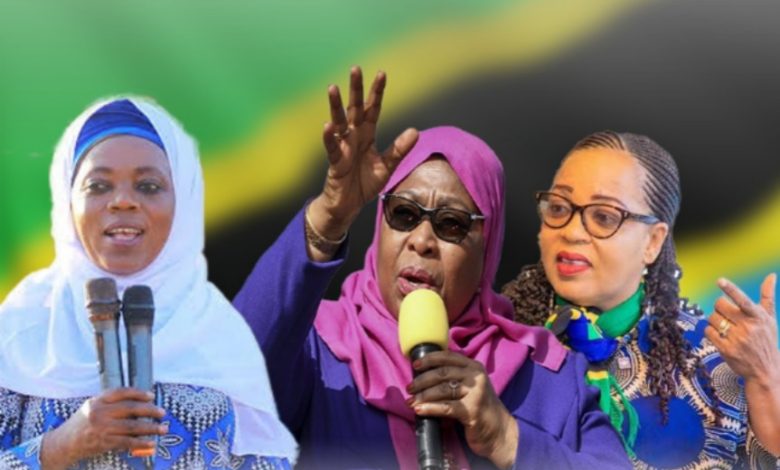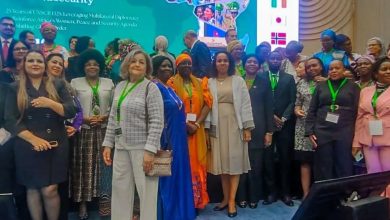What parties promise women this election

DAR ES SALAAM: FEW days to the October 29 General Election, women’s issues have taken centre stage in party manifestos, reflecting a growing recognition of their vital role in the nation’s social and economic fabric.
From pledges on maternal health and gender equality in leadership, to promises of affordable credit, land rights, and protection from Gender-Based Violence (GBV), political parties are competing to show how they will empower women and secure their place in national development.
The manifestos reveal both shared priorities and distinct strategies, painting a picture of how each party envisions the future of Tanzanian women.
This growing attention to women’s empowerment is also reflected in the historic composition of this year’s presidential race.
For the first time in Tanzania’s multi-party-political history, the 2025 General Election features an unprecedented number of women presidential candidates including the incumbent president and two others representing opposition parties.
This marks a historic moment where three women are vying for the nation’s top seat, signalling a major political and social shift. Analysts view this not merely as a reflection of party politics, but as evidence of a growing societal acceptance of women’s leadership at the highest level.
In previous elections, female contenders were few, but 2025 stands out as a defining year where women’s presence is reshaping the political conversation and inspiring broader debates on gender and governance.
CHAMA CHA MAPINDUZI (CCM)
•CCM commits to intensifying efforts against Gender Based Violence (GBV) in households, learning institutions, public and private spaces.
• Plans to lower interest rates on loans to increase access for lowand middle-income citizens, especially women, youth, and people with disabilities.
• It will allocate loans with a ratio of 40 per cent to women, 40 per cent to youth, and 20 per cent to people with disabilities, targeting 2.5bn/- by 2030.
• Pledges to establish three regional girls’ secondary schools to expand access to education for female students.
• Targets to reduce maternal mortality to 123 deaths per 100,000 live births annually.
• It will create an enabling environment for job creation, entrepreneurship, and industrial investment, with priority for women and youth.
• CCM recognises seaweed farming as a vital source of income for women along the coast and thus it aims to increase production from 19,715 tonnes in 2024 to 40,000 tonnes by 2030 in Zanzibar.
• It also commits to strengthening women’s economic empowerment mechanisms, gender desks for addressing violence, women’s networks for knowledge-sharing, and women’s representation in decision-making at all levels.
Chama cha MAKINI
• Pledges to form a new Ministry of Women and Equality and establish a political commission for women as an independent advisory body.
• It will put women at the heart of its government programmes.
• Commits to free, quality, and accessible maternal health care.
• Aims to create one million new jobs annually, prioritising youth and women.
• Plans to expand industries and technology sectors while providing entrepreneurship training for women and youth.
SAU (Sauti ya Umma)
•It will arrange affordable, longterm loans for farming groups, especially women, youth, and people with disabilities managing over 30 acres.
• Pledges to empower women farmers through access to resources, training, and credit.
• Intends to invest in smalland medium-scale women entrepreneurs by easing access to capital and markets, giving them priority in government procurement tenders.
• Commits to equitable land distribution, enhanced representation of women in politics, business, and public life.
• Pledges to advance women’s participation in sports through more funding, facilities, and awareness campaigns. CUF
•Pledges to aligns its gender agenda with SDG 5 (Gender Equality) by 2030 as it recognises that true development is impossible without the equal and dignified participation of women at all levels.
• It will pass a National Law to End Violence Against Women and Girls, including tougher measures against gender-based violence.
• Plans an Integrated Programme for Women’s Economic Empowerment through loans, training, equipment, and market access.
• Guarantees 30 percent of public procurement contracts for women, youth, and people with disabilities.
• It will enforce 50 percent gender parity quotas in decision making positions.
• It will provide free reproductive health services up to district hospitals, and revise school curricula to eliminate gender bias.
• Pledges to abolish harmful practices including child marriage, FGM, widow inheritance, and stigma against single mothers or pregnant students.
• Promises to establish a National Women’s Bank, women’s innovation hubs, and ensure equal land ownership.
• It will expand girls’ secondary schools and vocational training institutes across all councils.
ALSO READ: TAMWA hails Women’s massive entry to General Elections race
Chama cha Kijamii (CCK)
•It will establish a human rights unit to safeguard the rights of women, youth, children, people with disabilities, and the elderly.
ADA TADEA
•It will amend marriage and divorce laws to ensure equal property rights for women and men as well as plans to form a special national team to address unresolved land disputes.
• Prioritises free healthcare for pregnant women, children under five, and the elderly over 60.
NLD
•Proposes a 50 per cent participation policy for women in political and executive decision-making positions.
• It will create a Women and Disability Development Fund at every council for loans and entrepreneurship training.
• Plans to review land and credit policies to guarantee women’s ownership and benefits from resources.
• Pledges to abolish discriminatory laws and cultural practices. •
It will establish social rights desks at all government levels.
UMD
•It will promote women’s participation in leadership and economic activities.
• Plans rural and urban awareness campaigns on women’s role in development.
CHAUMMA
•It will establish special women and youth empowerment schemes through grants and interest-free loans.
Democratic Party (DP)
•Pledges to eliminate social injustices against women, youth, the elderly, and people with disabilities.
• Plans to establish a new Ministry of Women, Equality, Youth, Elderly, and People with Disabilities.
• Will form a women’s political commission as an independent advisory body.
• Commits to placing women at the centre of its government programmes.
NRA
•It will strengthen services and protect the rights of special groups including women, youth, children, the elderly, and people with disabilities.
UPDP
•Promises interest-free loans for women and youth, starting from 5m/- upwards, to support businesses and increase daily income.
UDP
•It will implement a 50/50 employment policy for both genders in government and the private sector, as well as introduce a Gender Equality Scorecard for every institution.
• It will establish tax incentives for employers who hire women and persons with disabilities, and ensure friendly workplace environments, including maternity leave, childcare services, and the elimination of gender-based discrimination.
• It pledges to guarantee access to quality education for girls, persons with disabilities, and marginalized communities, and to enforce a school re-entry policy for girls who become pregnant without discrimination.
It will also prioritize the construction of girls’ hostels in rural areas to reduce risks and long travel distances, provide loans and scholarships for students from special groups, and promote ICT programs for girls and women.
• It will remove barriers to capital, markets, and business skills, ensuring that 30 percent of local government loans are allocated to women, youth, and persons with disabilities.
It pledges to establish a Special Business Fund for Women through TADB and development banks, and to support SACCOS groups for rural women.
• It will link women entrepreneurs to national and international markets, introduce an online trading system for women, and provide training in business management, accounting, and taxation.
• It will increase the representation of women and special groups in boards, councils, Parliament, and government.
It pledges to enact by-laws guaranteeing gender representation in institutions and political parties, alongside awareness, education, and mentorship programs for women aspiring to leadership positions.
• It will ensure that at least 30 per cent of government tenders are awarded to companies owned by women and special groups, establish a special registration system for women contractors, and provide training on tender preparation and procurement competitiveness for women entrepreneurs.





